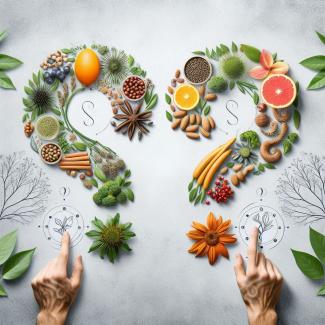
The idea that you need to drink exactly 8 glasses of water a day is not necessarily accurate or a universally applicable guideline. The "8x8 rule," which suggests consuming eight 8-ounce glasses of water each day (equivalent to about 2 liters or half a gallon), is a simplified recommendation that should be understood in the context of individual hydration needs.
The truth about daily water intake is more nuanced and depends on several factors:
- Individual Needs Vary: The amount of water a person needs can vary widely based on factors such as age, sex, body weight, activity level, climate, and overall health. What's right for one person may not be suitable for another.
- Listen to Your Body: Rather than fixating on a specific number of glasses, it's more important to pay attention to your body's signals. When you're thirsty, drink water. When you're not thirsty, forcing yourself to drink excessive amounts of water is not necessary.
- Diet Contributes to Hydration: A significant portion of your daily water intake comes from the foods you eat, especially those with high water content like fruits and vegetables. So, your water needs can be partially met through your diet.
- Too Much Water Can Be Harmful: Drinking excessive amounts of water, especially when not thirsty, can lead to a condition called water intoxication or hyponatremia, where the levels of sodium in your blood become dangerously low. This can be life-threatening in severe cases.
- Adjust for Activity and Climate: Your fluid needs may change based on your physical activity level and the climate you're in. Hot weather and exercise can increase your fluid requirements.
- Urine Color Can Be an Indicator: The color of your urine can provide a simple way to gauge your hydration level. Light yellow or pale straw-colored urine typically indicates good hydration, while dark yellow or amber-colored urine may signal dehydration.
In conclusion, there is no one-size-fits-all answer when it comes to daily water intake. The best approach is to listen to your body, respond to your thirst cues, and adjust your fluid intake accordingly. If you have specific health concerns or conditions, it's advisable to consult with a healthcare professional or registered dietitian for personalized guidance on your daily water intake. The key is to stay adequately hydrated while being mindful of your unique needs.






